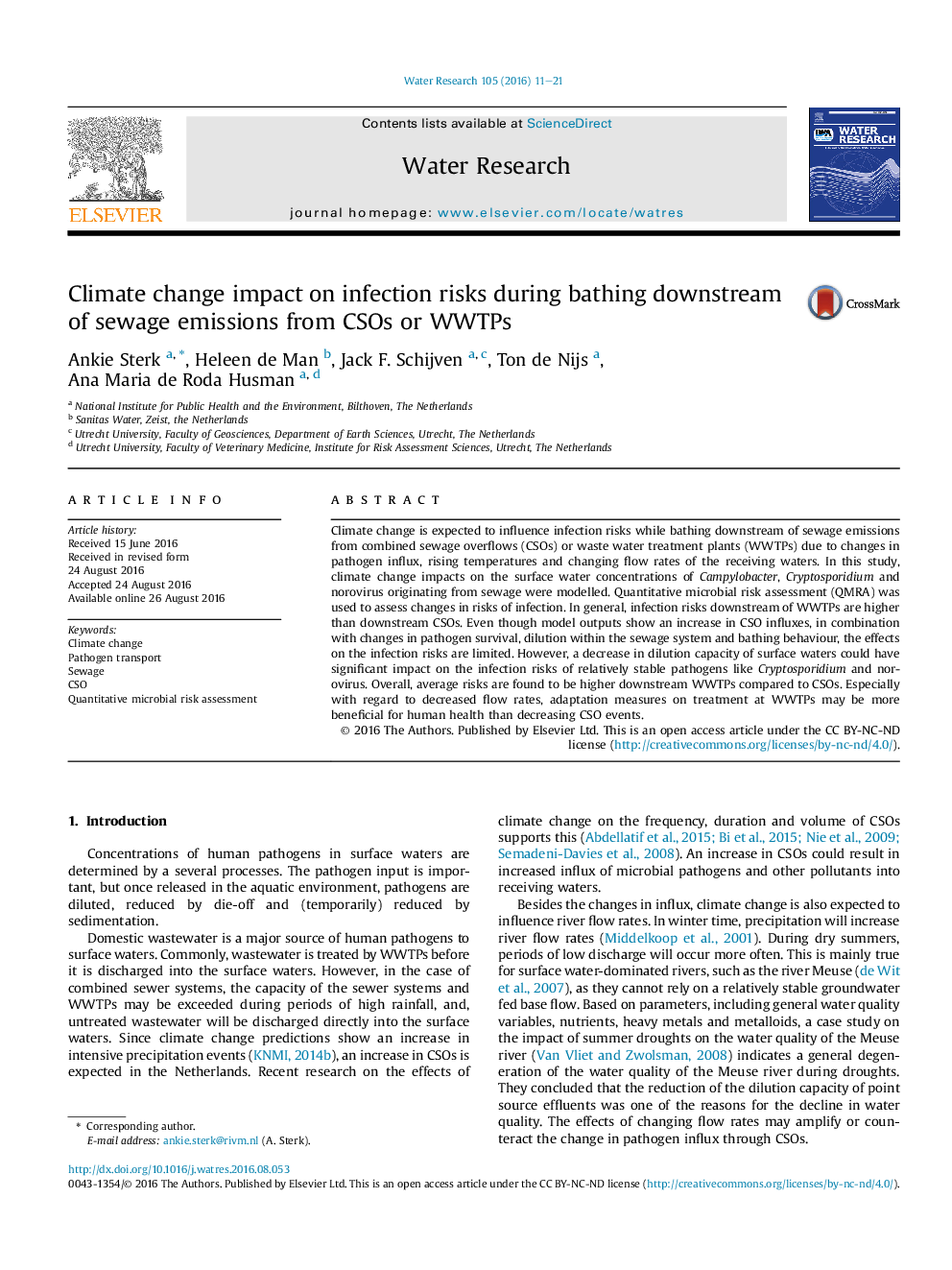| کد مقاله | کد نشریه | سال انتشار | مقاله انگلیسی | نسخه تمام متن |
|---|---|---|---|---|
| 6364543 | 1623063 | 2016 | 11 صفحه PDF | دانلود رایگان |
- In general, infection risks downstream of WWTPs are higher than downstream CSOs.
- Climate change will increase CSO frequency, volume and duration.
- This increases concentrations of Cryptosporidium and norovirus downstream of CSOs.
- The concurrence of CSO events and bathing avert an increase in infection risks.
- Decreased flow rates could engender a large increase in infection risks.
Climate change is expected to influence infection risks while bathing downstream of sewage emissions from combined sewage overflows (CSOs) or waste water treatment plants (WWTPs) due to changes in pathogen influx, rising temperatures and changing flow rates of the receiving waters. In this study, climate change impacts on the surface water concentrations of Campylobacter, Cryptosporidium and norovirus originating from sewage were modelled. Quantitative microbial risk assessment (QMRA) was used to assess changes in risks of infection. In general, infection risks downstream of WWTPs are higher than downstream CSOs. Even though model outputs show an increase in CSO influxes, in combination with changes in pathogen survival, dilution within the sewage system and bathing behaviour, the effects on the infection risks are limited. However, a decrease in dilution capacity of surface waters could have significant impact on the infection risks of relatively stable pathogens like Cryptosporidium and norovirus. Overall, average risks are found to be higher downstream WWTPs compared to CSOs. Especially with regard to decreased flow rates, adaptation measures on treatment at WWTPs may be more beneficial for human health than decreasing CSO events.
189
Journal: Water Research - Volume 105, 15 November 2016, Pages 11-21
